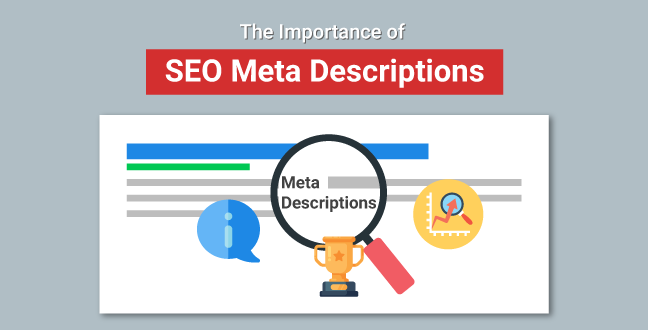A meta description (sometimes called a meta description tag or attribute) is an HTML element that describes and summarizes the content on your page for the benefit of users and search engines. Although metadata is not as important to SEO rankings as it used to be, meta description still plays an important role in on-page SEO.
In this article, you will learn:
- What “meta description” means and how to view your site’s meta description and how it affects visitors.
- Why meta descriptions are important to you and your SEO positioning.
- How to extract real search value from your meta description.
What Is a Meta Description?
A meta description is an attribute within your meta tags that helps you describe your page. This snippet of text may appear in search engine results below the title, although search engines sometimes extract a snippet of text from the main body copy of the page.
You can find the meta description on any web page by right clicking on the page and selecting “view source code” or “view page source code”:
View your page meta description by right-clicking and selecting “view source code.”
After examining the code on the page, you will likely see a description meta tag, which will probably look like this:
<meta name=”description” content=”Meta descriptions can have a surprisingly large impact on your search marketing campaigns; find out how…” />
<meta name=”keywords” content=”meta description,google meta description,meta name description” />
<meta name=”robots” content=”index,follow” />
This information has a few purposes, one of which is to serve as a snippet of text in the SERP when researchers run a search query for which your page is ranked. The meta description should provide search engine users with a short description of what they will find if they click on your site.
Therefore, a Google search for “meta keywords” can generate a SERP list like the following:

How Long Should a Meta Description Be?
Google recently extended the standard length of meta descriptions. Previously, meta descriptions were recommended to be 160 characters or less.
As of 2017, Google will display up to 275 characters in the SERP. Therefore, you should optimize your meta description tags to be up to 275 characters long.
Why Do Meta Descriptions Matter?
Meta description tags can have a significant impact on your search engine optimization efforts. The meta description has a core value:
Your meta description acts as “organic ad text”.
What this means is that when your ad ranks for a keyword, Google and other engines generally display the meta description as a page summary.
This makes the meta description just as important as the ad copy.
An attractive meta description has the power to increase the click-through rate of your organic search results. This means that more people who see your page in search results will actually click on your site. That means more traffic for you, even if your ranking remains the same!
How Can I Write Better Meta Descriptions?
The best practices for creating good meta descriptions are very similar to those for writing good ad copy:
- Use specific and searched keywords in your meta descriptions.
- Make sure they are highly relevant to the content on each page; never use the same meta description throughout the site.
- Communicate benefits and urgency.
- Compel users to click to showing them value and appealing to emotion.
